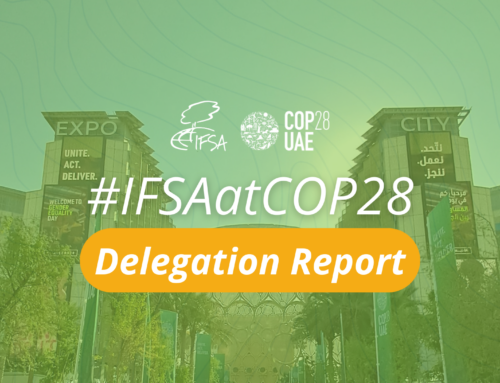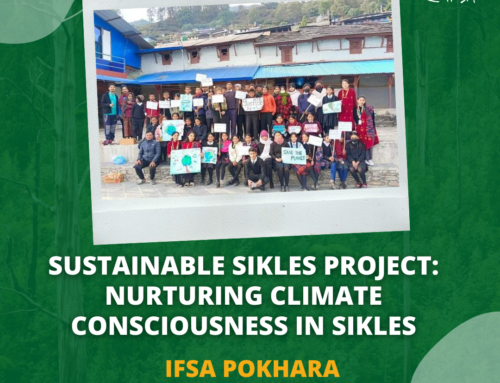My name is Matthew Todd, a 23-year old from the United States, specifically Massachusetts. I began to travel within my country at the age of 8, when my family went on a cross-country trip in our camper from California to Florida then back to Massachusetts. Soon after, I began to travel the globe and see what seemed to be other worlds.
My experiences with the natural world allowed my younger self to develop a somewhat romantic relationship with nature. A relationship where I did not want to be in control. A relationship where I could just calmly be and appreciate what is. And see no human impacts. Some find that relationship with oceans, some with savannahs, and some with forests. Some appreciate the beauty of a sunrise, while others flock to see the final rays of a sunset. Personally, I enjoy the being in the presence of forests, among other natural places. This stems from my hiking roots based in the White Mountains of New Hampshire. My father took me there as a boy and I became a hiker. I still am today.
This relationship I have with nature and its wonders led me to pursue a bachelor’s degree in both forestry and wildlife ecology. The science of trees and animals. Flora and fauna. Both have coexisted for lifetimes. But I have found that this coexistence today is not harmonious primarily due to one faunal species: humans. It is in our nature to consume. Like any other species, we must consume resources to survive. One such resource we have impacted is our forest base.
Deforestation is directly tied to humans, because we can manipulate forests according to what we want. Humans have been deforesting for thousands of years. We do what we want and we get what we want, because we can. Is that not human? And as we do and get what we want, we leave negative impacts on forests and the rest of the natural world. Is that sustainable?
In my opinion, the global north perfected the biggest impact: roads. The trampled paths from which we historically walked or rode horses on have evolved into multi-lane highways that feature the occasional roadkill. Although they aided the development of North America, roads fragment habitats and destroy forests. Road networks form a human matrix and we can easily see our impact on nature. Just look at aerial photographs. We can see the places we have been and the lands we have altered- the lands that we have manipulated to get what we want.
In our changing world, where many people work towards reducing the impact of our species, does anybody care about reversing our impact? I do, and I have a solution. A way to reverse our impact is to start removing roads. I am not arguing that we should remove all roads, but I believe that some roads can be removed and replaced with natural vegetation. Removing roads can not only reduce our impact, it can reverse it. And it must start in the global north.
But, alas, there are many factors to consider. First of all, what happens economically when you remove a road? What would be the impact on humans? It seems obvious. Our routes of access to different places would be threatened and this probably would not be positive in an economic sense, initially. It seems like we would be taking the loss if we start removing roads from certain places. But if we start removing roads, and if we start taking small losses, will there not be a winner? And would that winner not be nature?
What would be the impact of removing roads on the environment? Again, it seems obvious. Vegetation would take over, in time, as it naturally would have. The relationship between flora and fauna could be strengthened. It would be an easy win for nature. Is that sustainable?
Removing roads would also give trees a unique opportunity. Trees could be replanted to connect forests to forests. The role of forests is essential for reversing the human impact, because they, among other ecosystem services, sequester carbon. Instead of focusing on reducing our impact, we should reverse our impact. But would humans ever willingly take a loss for nature through road removal? I have faith that this could happen and that forests would help.
I believe that we must take responsibility as humans, as global citizens, to leave the world a better place for future generations. Reversing our impact would result in gains for nature as we substitute forests, among other vegetation, for roads. But it would not be easy and it may not be supported by those not willing to put nature first. Would replacing roads with forests be sustainable? Perhaps. Innovative changes are required to solve the wicked problems of the world. And reversing human impact is a change I think we can physically see if roads are removed. I always want there to be those places where you can just be and appreciate the natural world. And see no human impacts.
But it all comes down to one question: which roads?
Matthew Todd was raised in Massachusetts, USA and graduated from the University of Maine in 2017 with a Bachelor of Science in Forestry and a Bachelor of Science in Wildlife Ecology. He will be volunteering for the International Institute of Tropical Forestry in Puerto Rico after completing his courses in the Master of International Forestry (MIF) program at UBC. In the past, he was a research assistant studying the effects of a fungus on Eastern white pine growth and health, spent a semester at Bangor University in Wales, completed an internship with the UNEP/CMS Secretariat in Bonn, Germany, and also worked for a tree care company. In 2010, Todd earned the rank of Eagle Scout, the highest achievement attainable in the Boy Scouting program of the Boy Scouts of America. His favorite activities include hiking, baseball, basketball, snowboarding, and traveling. He can be contacted at matthew.todd(a)alumni.ubc.ca.




